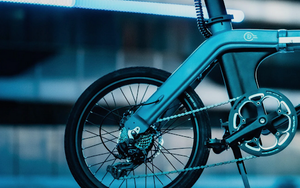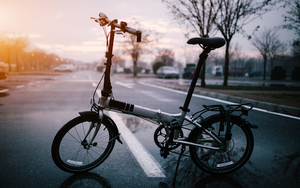Are Electric Scooters Legal in Edinburgh?
Oct 20, 2024
As electric scooters gain popularity as a quick and eco-friendly mode of transport, many Edinburgh residents and visitors are left wondering about their legal status. Navigating the regulations surrounding electric scooters can be confusing, especially in a city with its own unique set of rules. This article aims to shed light on the legal landscape of electric scooters in Edinburgh.
- Understanding Electric Scooter Laws in the UK
- Electric Scooters in Edinburgh: A Closer Look
- The Future of Electric Scooters in Edinburgh
- Renting vs Owning Electric Scooters in Edinburgh
- Consequences of Illegal Electric Scooter Use
- Conclusion
Understanding Electric Scooter Laws in the UK
The legal framework for electric scooters in the UK has evolved significantly in recent years. With the surge in interest for these vehicles, there’s estimated to be around 550,000 e-bikes and e-scooters in the UK, different areas have enacted specific laws to regulate their use. For anyone considering using an electric scooter, it is essential to be aware of these regulations to avoid potential legal issues.
The Current Legal Status of Electric Scooters
As of now, privately owned electric scooters are generally classified as ‘personal light electric vehicles’ and are subject to similar rules as motor vehicles. This means they are not allowed to be used on public roads, pavements, or in other spaces where motor vehicles cannot go. However, rental electric scooters can operate legally within designated areas of Edinburgh under specific guidelines. These rental schemes are designed to provide a convenient and eco-friendly mode of transport, but they also come with strict regulations, including age restrictions and mandatory registration, to ensure user accountability and safety.
The UK Highway Code and Electric Scooters
The UK Highway Code provides essential information regarding the use of electric scooters. It outlines the rights and responsibilities of scooter users, promoting safety on the roads. Notably, the code highlights the requirement to abide by speed limits and to wear appropriate safety gear, such as helmets, to mitigate risks while riding. Additionally, the code emphasises the importance of being aware of one’s surroundings, encouraging riders to stay vigilant for pedestrians, cyclists, and other vehicles. This proactive approach to safety aims to foster a culture of responsible riding, which is crucial as more individuals opt for electric scooters as a primary means of transport.
Moreover, the Highway Code also addresses the need for proper maintenance of electric scooters to ensure they are roadworthy. Riders are encouraged to regularly check their scooters for any mechanical issues, such as brake functionality and battery life, before embarking on their journeys. As electric scooters become increasingly popular, local councils are also exploring the implementation of dedicated lanes and parking areas to facilitate safer riding experiences and to reduce potential conflicts with other road users. This ongoing development reflects a broader commitment to integrating electric scooters into the UK's transport ecosystem while prioritising safety and accessibility.

Electric Scooters in Edinburgh: A Closer Look
Edinburgh has witnessed a growing trend in the use of electric scooters, both for residents and tourists. This section examines the local regulations and the general public attitude towards scooters within the city.
Local Regulations for Electric Scooters
The City of Edinburgh has introduced specific regulations governing the use of electric scooters, particularly for rental services. Scooter users can typically be found zipping through designated paths that ensure minimal disruption to pedestrians and road traffic. It is crucial for users to remain informed about the areas where riding is permitted and to follow the local road signs that guide them.
Public Opinion on Electric Scooters in Edinburgh
The public opinion regarding electric scooters is mixed. Many residents appreciate the convenience and speed they offer, contributing to a greener transportation system. For example, the Ducati Pro-II Evo is great for commuting.
On the other hand, concerns about safety, particularly the risks associated with riders not following traffic laws or using scooters recklessly, are prevalent. Various public forums and surveys have been conducted to assess community sentiment, which further influence future regulations.

The Future of Electric Scooters in Edinburgh
As electric scooters become increasingly common, discussions regarding their future in Edinburgh are intensifying. Local authorities are considering potential changes aimed at enhancing safety and accessibility for all road users.
Proposed Changes to Electric Scooter Laws
One of the proposed changes includes expanding the allowed areas for private scooters, subject to safety assessments and the implementation of dedicated lanes. This could help accommodate the growing number of users while developing a safer environment for everyone. Public consultations are currently underway to gather feedback and gauge acceptance levels for these changes.
Impact on Traffic and Public Safety
The integration of electric scooters into Edinburgh's transportation mix is expected to impact traffic congestion positively. By providing an alternative to cars for short distances, scooters could alleviate road congestion during peak hours. However, their presence also raises questions about public safety and the need for infrastructure improvements to protect both riders and pedestrians.

Renting vs Owning Electric Scooters in Edinburgh
Deciding whether to rent or own an electric scooter involves understanding the legal implications of each option. This section delves into the responsibilities and considerations for both rental and ownership.
Legal Implications of Renting Electric Scooters
Rental scooters, usually operated by authorised companies, come with specified terms of use that riders must adhere to. Users are often required to provide personal information and agree to abide by safety guidelines, which help ensure accountability. However, riders must still remain aware of the laws surrounding scooter use to prevent fines or penalties.
Legal Implications of Owning Electric Scooters
Owning a private electric scooter presents its own set of legal responsibilities. Product specifications must comply with UK regulations, including restrictions on speed and power. Additionally, owners must remain vigilant about where they ride, as illegal use can result in penalties or confiscation of the vehicle. However, use on private land in Edinburgh is allowed and the iENYRID ES60 Dual Motor scooter is a great off-roading option.

Consequences of Illegal Electric Scooter Use
Using an electric scooter in violation of local regulations can lead to significant consequences. Riders must understand the potential implications of their actions to navigate the legal landscape safely.
Legal Penalties and Fines
Illegal electric scooter use may result in various legal penalties, including fines and potential confiscation of the scooter. Local authorities actively enforce these rules, which are designed to enhance public safety. Riders should educate themselves on specific laws to avoid unwelcome surprises.
Insurance and Liability Issues
Electric scooter riders must also consider the implications of insurance and liability. In the event of an accident, the lack of proper insurance may expose riders to significant financial liabilities. It is advisable for both renters and owners to explore insurance options to safeguard themselves against unforeseen incidents.

Conclusion
In conclusion, while electric scooters can provide a convenient transport option in Edinburgh, users must adhere to local regulations to avoid legal issues. Understanding the laws can enhance safety and ensure a smoother riding experience.
At eDash, we have a variety of electric scooters available for private use. See our full range of electric bicycles and scooters here.






